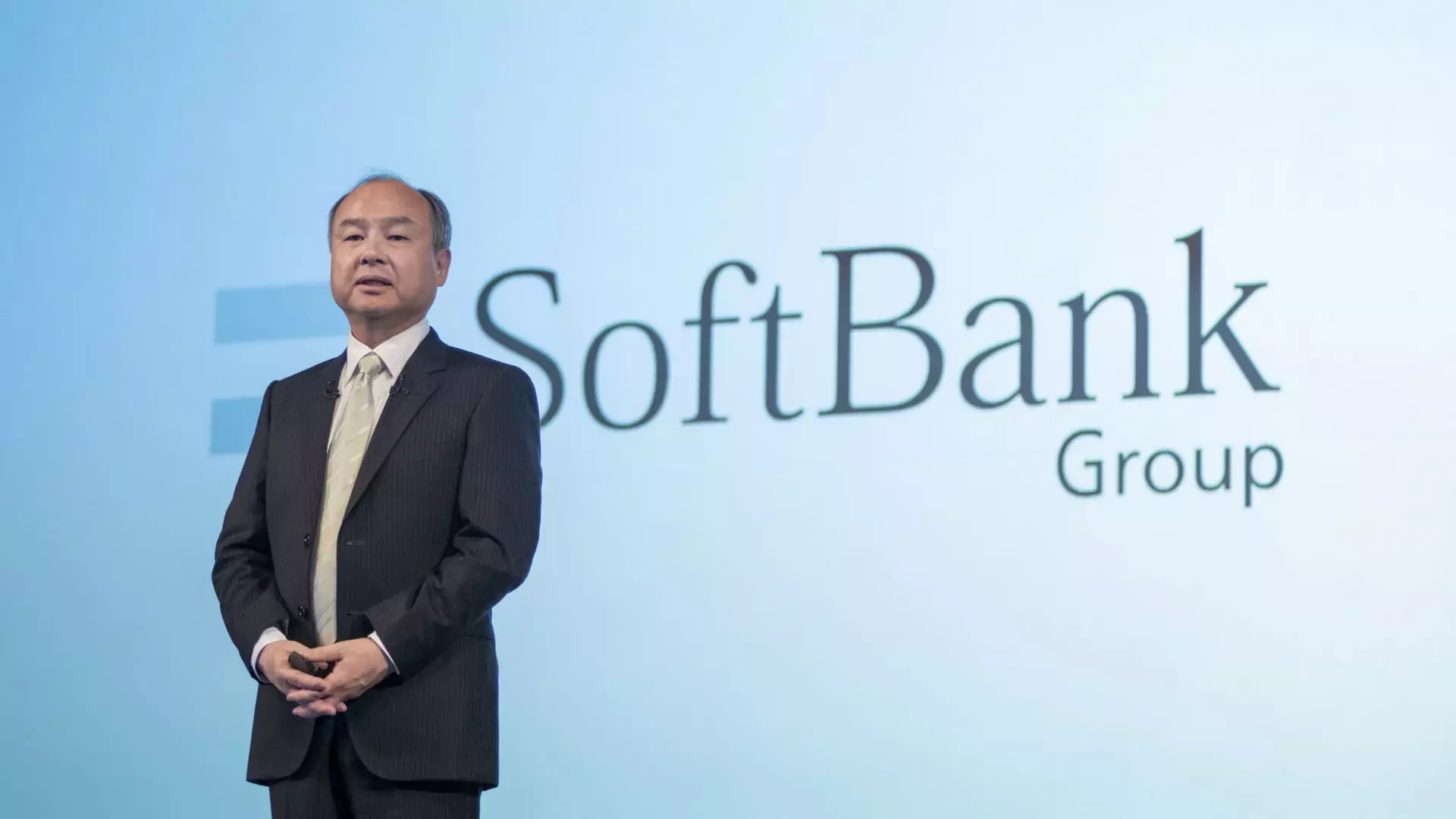In a striking display of recovery, SoftBank Group has reported a remarkable 608.5 billion yen (approximately $3.96 billion) gain from its Vision Fund during the second quarter of its fiscal year ending September 30. This surge marks a notable rebound, particularly following its previous quarter’s return to profitability after a tough year of losses. The Vision Fund’s overall performance, which includes factors beyond mere investment outcomes—such as administrative costs and external investor implications—revealed a net gain of 373.1 billion yen. This contrasted sharply with the 204.3 billion yen loss observed in the preceding quarter, showcasing a significant turnaround in the profitability dynamics of the tech investment giant.
The majority of SoftBank’s recent gains can be attributed to favorable valuation adjustments from key investments within its portfolio. Notable contributors to this upward trend include the e-commerce platform Coupang and the Chinese ride-hailing service Didi Global. Additionally, SoftBank’s stake in Bytedance has also appreciated significantly. Such developments indicate a recovery in certain sectors, which had previously struggled under market pressures. However, while this optimistic performance is noteworthy, it also underscores the inherent volatility within the tech investment landscape, where gains can be swiftly jeopardized by external factors.
Conversely, Vision Fund 2 has not fared as well, posting a net loss of 232.6 billion yen. This downturn is largely the result of declining valuations in critical investments, including those in the Norwegian robotics firm AutoStore and the American automation technology company Symbotic. The stark contrast in performance between the two Vision Funds highlights the unpredictable nature of tech investments, where success in one area can be counteracted by setbacks in another. Investors are consequently left with mixed signals, revealing that while potential exists, the path to sustainable profits remains fraught with challenges.
SoftBank has aggressively positioned itself at the forefront of the artificial intelligence sector, leveraging the rising demand for advanced technologies. This strategic pivot is exemplified by its significant investment in Arm Holdings, a leading smartphone chip designer, which has recently gone public, showcasing SoftBank’s adaptability to market trends. Masayoshi Son, the dynamic CEO of SoftBank, has expressed strong optimism about the potential of AI, labeling Nvidia—a semiconductor giant—as undervalued and projecting that AI could evolve to ten thousand times human intelligence in the near future. This bold vision signals SoftBank’s commitment to pioneering developments in AI, as it reportedly plans to inject $500 million into OpenAI’s series of funding rounds.
As SoftBank navigates these financial fluctuations, it simultaneously faces pressure from activist investor Elliott Management, which has taken a substantial position in the company and advocated for share repurchases totaling $15 billion. That pressure has driven SoftBank to announce plans to buy back 6.8% of its available shares, amounting to 500 billion yen ($3.25 billion). By the end of the recent quarter, the company had repurchased shares worth 153.8 billion yen, signaling its commitment to enhancing shareholder value amidst volatility.
As Japan’s economy grapples with fluctuations—including a strengthening yen and significant sell-offs in risk assets—SoftBank’s trajectory reflects both the challenges and potential of the broader market. Analysts have noted that while recent turbulence has subsided, the economic outlook remains uncertain, particularly concerning wage growth and interest rate hikes anticipated in the near future. The Bank of Japan’s current policies may shift based on these economic indicators, further influencing SoftBank’s market position and investment strategies.
SoftBank Group’s latest financial results demonstrate a compelling narrative of recovery and adaptation amid a complex economic environment. With strategically timed investments and a commitment to innovation, particularly in artificial intelligence, SoftBank appears well-positioned to navigate the uncertainties ahead, while also addressing shareholder concerns through active buyback initiatives.

